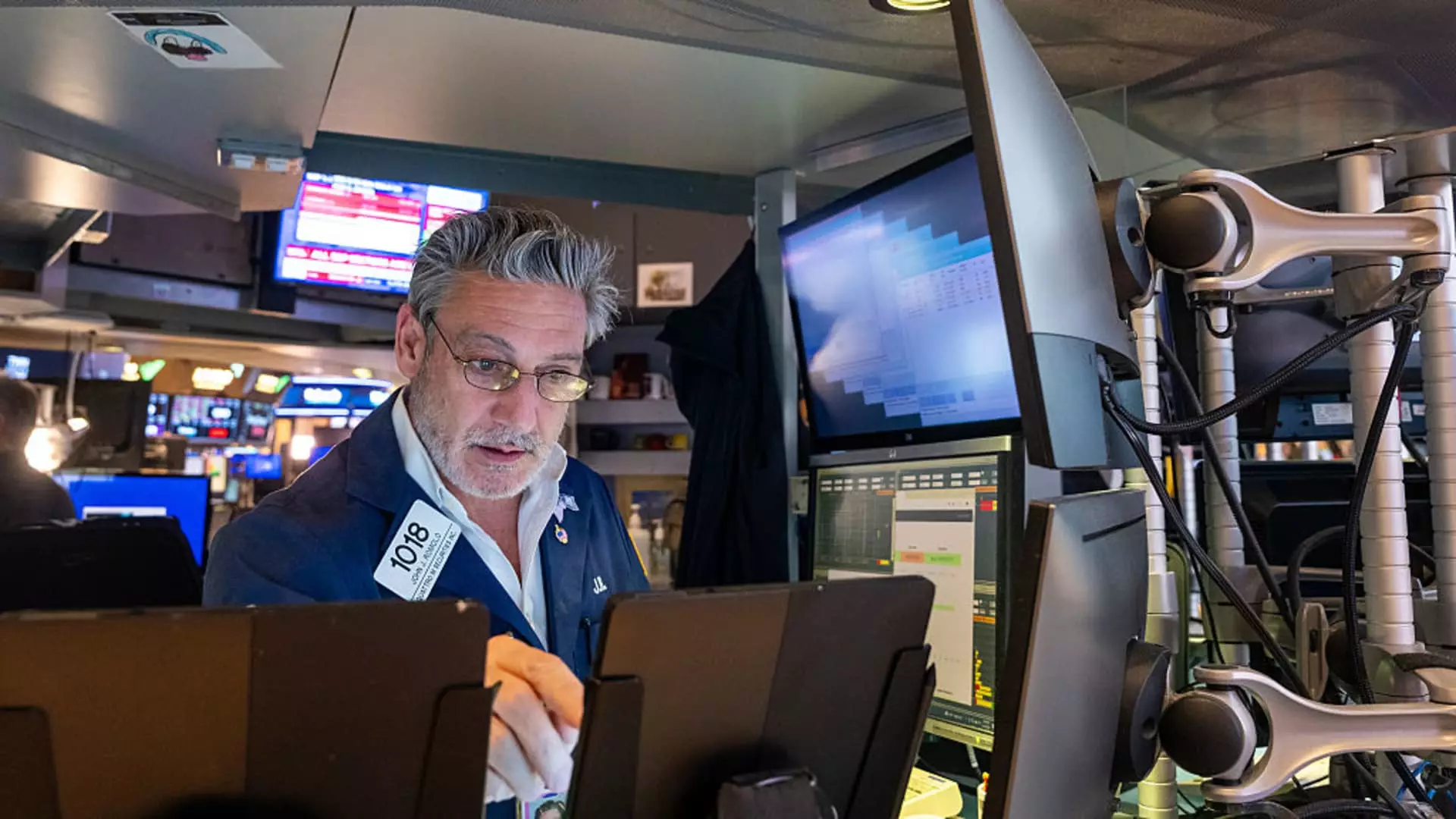In a world increasingly marred by unpredictability, defense stocks have emerged as an unexpected champion of resilience. While the broader financial markets are whipped into a storm of uncertainty—exemplified by the recent rollercoaster ride of the S&P 500—defense companies are showing a remarkable ability to weather economic disruptions. This divergence is not merely coincidental; it stems from a myriad of factors ranging from political stability to robust domestic demand.
After a sharp 3.5% decline in the S&P 500 following President Trump’s announcement of troubling tariff plans, many investors are seeking safe harbors. With defense companies often immune from such trade-induced volatility due to their predominantly domestic operations, they represent a rare opportunity for growth amid the chaos of international economic relations. Such positions could prove to be formidable, especially when considering the mounting global conflicts that perpetuate demand for defense-related expenditures.
The Role of Domestic Operations in Defense Performance
One of the core strengths of companies like Lockheed Martin and Huntington Ingalls Industries is their rootedness in the U.S. market. According to analysts like Sheila Kahyaoglu from Jefferies, these firms have little to fear when tariffs threaten trade corridors. They primarily rely on U.S. supply chains, which means they sidestep the complexities and potential costs associated with international sourcing of materials.
For instance, Boeing’s estimates suggest that around 90% of its defense unit is composed of components that are sourced domestically. This statistic is not mere hyperbole; it speaks volumes about the structural advantages these companies hold. As other sectors struggle under the weight of retaliatory tariffs, defense firms are positioned to play a different game altogether—one where they can achieve growth despite prevailing challenges.
Political Tensions Fueling Defense Investments
The interplay between global politics and defense spending is an undercurrent that quietly drives stock prices. As tensions simmer in regions like the Middle East and the Pacific Rim, there lies a natural inclination toward increased military expenditure. Thus, it becomes evident that heightened geopolitical strife often translates directly into bolstered defense budgets.
Notably, President Trump’s ambition to propose a Fiscal Year 2026 Defense budget exceeding $1 trillion has sent bullish signals throughout the industry. The proposed spending increase, which might add over $100 billion to what Congress authorized previously, indicates a sustained commitment to strengthening national defense—an aspect fundamentally entwined with the financial health of defense companies.
Market Predictions and Tactical Opportunities
Investors keen on making headway in this sector should keep a vigilant eye on companies that are perfectly poised to capitalize on government contracts and overall market growth. Analysts like Morgan Stanley’s Kristine Liwag have identified Northrop Grumman as a standout contender within the defense realm, showcasing a portfolio well-aligned with ongoing Department of Defense priorities.
Industry experts have also highlighted Huntington Ingalls as a stock that has gained considerable momentum recently. The company saw a notable surge of 16% in March after Trump’s rallying cry to reinvigorate shipbuilding. This suggests that not only is the market bullish on these defense stocks; they are also engrained with a narrative that the government will continue to invest in domains essential for national security.
L3Harris is another name commanding attention, with analysts like Douglas Harned advocating its strong alignment with defense requirements and operational improvements. If Harned’s $267 price target materializes, it would culminate in a desirable 20% upside from current levels, making it an enticing consideration for investors looking for solid returns backed by strategic moves and unwavering commitment from federal budgeting.
Navigating Market Uncertainty with Defense Stocks
In an era where economic uncertainties loom large—heightened by political discourse and tariff wars—defense stocks present an anomaly; a stable beacon in tumultuous waters. The implications are clear: while other sectors reel from the repercussions of global trade disputes, the defense industry showcases an underlying strength born of both necessity and structural advantage.
Investors must recognize that while the market can be fickle, sectors like defense are deeply rooted in indispensable national priorities. Holding stakes in these companies not only seems financially prudent but aligns with a broader understanding of an ongoing commitment to safeguarding national interests. In a time where militarized global tensions remain a central theme, the investment community would do well to keep a steady gaze on defense equities as a sanctuary amid widespread economic turmoil.

